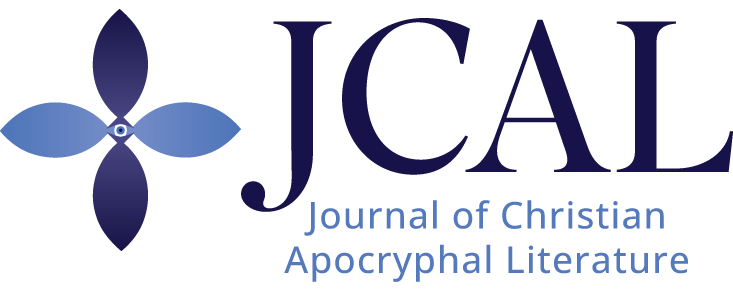Author Guidelines
Scope & Article Types
JCAL publishes research on non‑canonical Christian texts and their receptions, from antiquity to the present. We accept the following categories:
- Research Articles: 6,000–9,000 words (including footnotes). Double‑blind peer review by two readers.
- Notes & Translations: 2,000–5,000 words (including footnotes). Double‑blind peer review by two readers.
- Topical Forums: Multi‑author themed clusters or proceedings; internal (non‑anonymized) editorial review. Length arranged with the Forums Editor.
- Book Reviews: 800–1,200 words; internally reviewed by the Book Review Editor; typically by invitation or prior arrangement.
Submission Files
- Manuscript: Submit a single .docx (Microsoft Word) file. Use a Unicode font for all non‑Latin scripts; provide DOIs where available.
- Figures/Images: Upload high‑resolution files separately and secure permissions as required; include credit lines in a caption list.
- Supplementary Materials: Appendices such as extended tables, images, or ancillary textual materials; reference them in‑text (e.g., “see Supplement A”).
Style & Formatting
- Reference Style: Follow the Society of Biblical Literature (SBL) Handbook of Style, 2nd ed. (2014), including abbreviations and citations.
- Notes: Use footnotes (not endnotes) and keep them concise and relevant to the argument.
- Scripts & Transliteration: Use Unicode (e.g., polytonic Greek, Syriac, Coptic). Follow SBL transliteration conventions as applicable.
- Layout: Standard academic formatting (readable serif font, double‑spaced main text, and consistent heading levels and captions).
Anonymized (Double‑Blind) Review
For Research Articles and Notes & Translations:
- Remove author names, affiliations, acknowledgments, and self‑identifying references from the manuscript file.
- Mask self‑citations that would reveal identity where necessary (e.g., “Author”).
- Upload a separate title page containing author names and affiliations.
Topical Forums and Book Reviews are not anonymized; they undergo internal editorial review.
Length
- Research Articles: 6,000–9,000 words.
- Notes & Translations: 2,000–5,000 words.
- Book Reviews: 800–1,200 words.
Longer submissions should be discussed in advance with the Editors‑in‑Chief (Forum lengths are set with the Forums Editor).
Translations & Textual Materials (for Notes/Articles)
- Identify base text(s): edition used and/or manuscript shelfmark(s) and sigla, and justify major textual decisions.
- Provide a brief translation statement (principles; handling of lacunae; bracket conventions).
- Ensure permissions for reproduced images or substantial textual excerpts; include required credit lines.
Book Reviews
- Supply full biographical information on the book in the following format: Author, Title, Series, Number (Publisher, Date). ISBN. For example:
Andrew S. Jacobs, The Life of Thecla: Apocryphal Expansion in Late Antiquity, Early Christian Apocrypha, 11. Cascade Books, 2024. ISBN: 9781666746402 (Paper).
- Provide a concise and comprehensive description of the work being reviewed.
- Provide a balanced evaluation of the book.
- Do not include footnotes. Include any citations or page references internally to the body of the review in parentheses.
- For longer review essays, consult with the Book Review Editor.
References
- Authors are responsible for the accuracy and completeness of citations.
- Provide DOIs where available.
- Format bibliography and notes according to SBL Handbook of Style.
Generative Artificial Intelligence
- For Research Articles and Notes & Translations, the use of generative AI systems (e.g., large language models such as ChatGPT/Gemini/Copilot), AI paraphrasers, machine-translation engines, or image generators is not permitted at any stage (idea development, drafting, revising, translating, summarizing sources, or figure creation).
- All prose, translations, annotations, and figures must be the authors’ own scholarly work. AI systems may not be listed as authors or coauthors.
- Non-generative utilities that do not introduce new content—e.g., spell-checkers, grammar flaggers, reference managers, citation-formatting tools, OCR for scans, and file-format conversion—are acceptable.
- Submissions found to have used generative AI will be desk-rejected; post-publication violations may result in retraction or correction at the Editors’ discretion.
- These guidelines apply to all submission types unless explicitly stated otherwise by the appropriate editor.
Correspondence
All correspondence should be addressed to the editors.
